I have a small selection of old photographs on the wall adjacent to where I am sat now. Below them are old magazine articles pinned onto a corkboard; stuff I have cobbled together whilst chasing a quasi-secondary career as a freelance journalist. Underneath them are trophies, mainly from the 90s and early 2000s. The whole lot of them are worth less than the loose change shoehorned behind your average sofa. But they retain an inextricable link to those photographs, their memories perfectly entwined.
They serve as Visual reminders of old matches that no one has heard of and barely anyone in their right mind would ever care about. But get a few of those lads, stood uncomfortably with their arms folded in those ancient team pictures, together with a few beers and suddenly the hidden details all come flooding back. An endless river of nostalgic fragmented memories; those “boring stories of glory days” as Bruce Springsteen once sang. Remembered moments interesting only to those that had once lived them.
Despite the preponderance of booze and bad living, there was something innocent about those days. Final reminders of a world before responsibility and mortgages replaced playing cricket every Saturday and Sunday. A lost time when the game was simply the most important thing in the world.
On the top of the board, there is a picture of a windswept recreation ground, everyone’s hair blowing wildly like Freddie Boswell, from the 80s sitcom Bread. You can feel the grey skies and cold amidst the brutalist grey council changing rooms. I would have been barely 20 then, my hair may have looked permanent but it wasn’t to be. Some of the other lads were even younger, still hovering at school or college age and fitfully fending off the advances of the real world. Others were then the age that I am now. Men in their 40s with families; impossibly old, and who’d sip a shandy after the game when the younger lads would be dashing out to hit the Saturday night pubs and clubs. It is sobering now to see the world from their view. More sobering of all is the realisation that in the intervening 20 years that three of those old team-mates are no longer with us.
We called him Big John, not because he was especially big but to differentiate him from ‘Little John’ who was indeed very little. A barely 5” tall wicket-keeper who I recall once jumping on a stranger’s back and clinging on like an eager Koala bear following a drunk taking aim at me in a Bournemouth bar. You don’t forget those moments. Another memory of him staggering around a Torquay nightclub searching for a pint of bitter, his shirt completely open and exposing his spherical beer-gut, whilst he complained about the unforgiving heat and the lack of a pint of best to quench his Ice Cold in Alex thirst. A diagnosis of diabetes slowed down his drinking and all those extra pieces of cake at tea. I have no idea where he is now. I saw him almost every summer weekend for about five years until one day I didn’t.
‘Big’ John keeled over at a bus stop. Massive heart attack. Dead before he hit the potholed pavement. He was 62 or as he would have said “six and two.” Not very good at maths was John or English for that matter. On the rare occasions, he spoke he would proclaim that his “mum dropped him on his head as a baby.” She didn’t. It was meningitis that got him instead. The grizzled old man with the big belly was the biggest, oldest little boy you had ever seen. He was mad about trains, AFC Bournemouth, and the endless cans of coke we would supply him with on match days.
He never played cricket but he was always there – our only supporter. You would see his rolling gait make its way from the bus stop and across the field on any given weekend. Often clad in a vest and braces he looked like he was going for a pre-war paddle on Margate beach. Silently he would sit by the scoreboard -waiting to fill his boots at teatime – just smiling and listening. It took him years to give me the ‘touch’. The little dab to the chest or arm that would tell you he thought you were okay.
When he went, a well-stacked church saw his coffin draped in an AFC Bournemouth flag. It could be considered tacky, but in the case of ‘Big’ John, it was entirely apt. His boyish devotion for his team never left him, it couldn’t, even if he had wanted it to…
Roger loved trains as well. He volunteered on the steam railway between Swanage and Corfe Castle. On a bad day, he could corner you and tell you all about it, through his Super Mario moustache and his ever-present Hampshire cap. But for all that, on countless occasions he would come out on winter evenings equipped with his jump leads to spark up my car battery, after I had left the lights on all day for the umpteenth time. He was a decent bloke, whose biggest failing was that he desperately wanted to be a good cricketer. A quest in which he was largely unsuccessful and not helped by his preference to always bat in the top four.
I remember him erupting one night in the bar at Kings Park, adjacent to the football ground, and sending an empty table pirouetting across the lounge. I forget what the argument was about, but it was a routine part of the soap opera that was The Willows C.C.
We lost Simon early this year. A couple of years from retirement he’d worked on the railway for decades. Whenever I was coming back home via Waterloo I would look out for him in the ticket office at Bournemouth Station; it will be strange not ever seeing him there again. Life’s finalities are hard to swallow, even more so when it concerns such a fundamentally decent man. The chairman of our club for as long as I can remember, he was often the only sane person in the changing room, and thus needed Henry Kissinger levels of diplomacy to quell the frequent arguments and complaints. Worst of all he was the only person I had ever encountered with a worse throwing arm than mine.
There are others in that picture that I haven’t seen for nearly 20 years, their whereabouts completely unknown to me. Graham with his droopy 70s era Goochie moustache belying a complete and utter lack of any sporting prowess. His physique was more suited to lazy days and nights at his favourite pub across the road from Wareham station, than it ever was for the accumulation of runs and wickets on the cricket field.
But despite being well into his 40s he had such an endearing almost boyish enthusiasm that it was impossible not to like him. Perennially number eleven in the order – even that was probably one place too high for him- he would always pad up at the start of the innings; desperately eager to get involved despite the inevitable fruitless outcome.
Always stationed on the fine-leg boundary his fielding was a frequent crowd-pleaser. His odd run, which was little more than a high-kneed mincing walk, as though he were stamping out a small fire or imagined himself to be Homer Simpson in the episode where he cavorts in an imaginary land made of chocolate. Once or twice I saw him take a catch and afterwards he would hang on to the ball as though he were Bobby Moore clinging on to the Jules Rimet Trophy.
In many ways, it wasn’t a club for ‘normal’ people and that is what made it special. In the early days, we struggled to get a team out and would take literally anyone. As the years went by we acquired some better players, moved up a division or two, and met with the usual two divergent methodologies: hunting pots or having a laugh with your mates. For the most part “having a laugh” came out on top, but not without its pitfalls and arguments along the way.
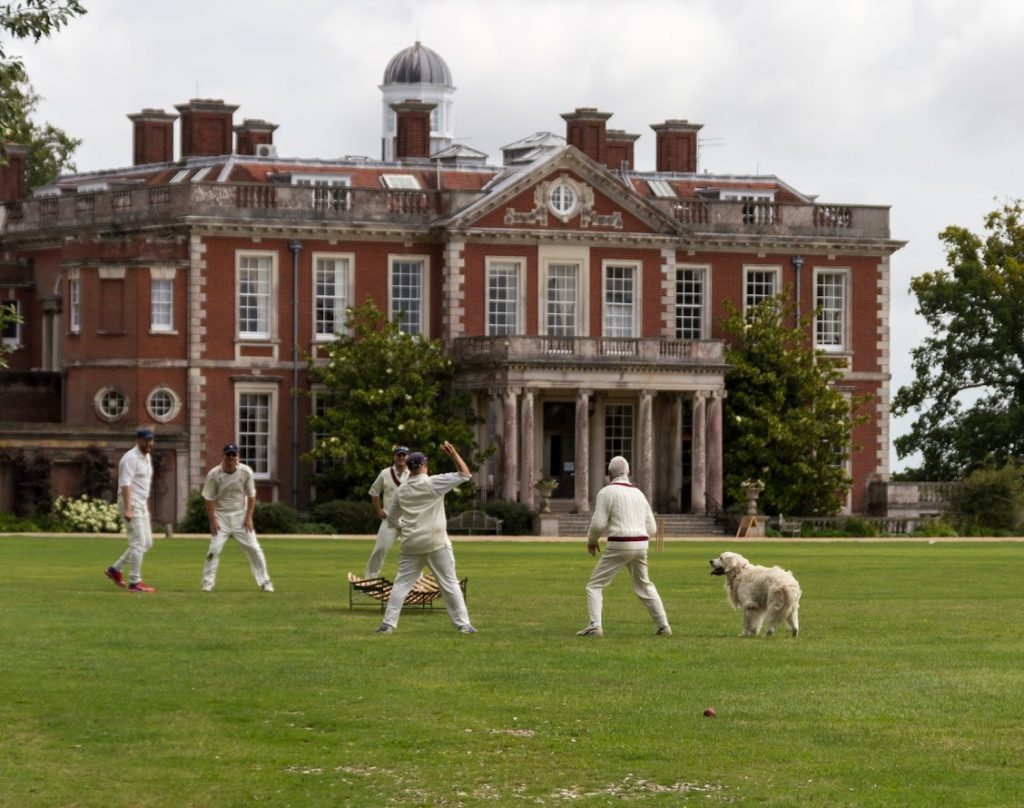
The list of characters was endless. A guy called Les who was a softly spoken almost teetotal churchgoer. Married to a vicar’s daughter, he arrived in Bournemouth via Brixton and Jamaica, with a backstory that was subject to much speculation, but very little real facts. Short and square-shaped he would occasionally tease us with the odd tale of him sparring Nigel Benn in a South London gym. We were later able to deduce that Les had indeed fought 33 times as a professional boxer, even appearing at the fabled Cesars Palace… albeit in Southend.
I once saw him take a catch so otherworldly that had it happened on television it would be repeated endlessly. Crouching at short leg as a raw-boned South African unwound corkscrew-like and larruped one straight off the middle directly at his head. Mortals would have ducked, flinched, put their affairs in order; but Les just stood there motionless, except for his hands wrapped nonchalantly around the missile.
I guess when you are used to the ‘Dark Destroyer’ taking aim at you, a cricket ball can hold few fears. But that champagne moment aside, his bowling was slow and erratic; his batting rarely yielding many runs either.
And then there was Steve. A left- armer with a beautiful action he was known throughout local cricket as ‘Psycho’. He had been the scourge of youth cricket, representing the county but the pace he possessed as a 14-year-old never increased. He was a dead-ringer for the archetypal ‘angry fast bowler’ and that was undoubtedly his image of himself, yet now in his mid-30s, he was little more than medium pace.
Against weaker teams, he would dominate and take hatfuls of wickets. His strategy was to continually pitch the ball on the same sixpence, but good batsman would spend a couple of overs patiently working him out, and then would lean onto the front-foot and drive the spirit out of him. This would usually be met with DEFCON levels of swearing and on a couple of occasions with him swinging his boot at the non-striker’s stumps and sending them flying to all parts.
Physically he looked like a clone of the deranged Liverpool football supporter played by Robert Carlyle in the Cracker TV series, starring Robbie Coltrane. His all-time low was climbing out of the car, dropping his trousers, and mooning a long, stationary queue of bank holiday traffic just outside of Corfe Castle. Directly behind his behind was an occasional player called Neil and his traumatised wife.
Neil only played a handful of games over a few years. With a bald head and round glasses, he was mild-mannered and well-adjusted, thus completely unsuited to being a civilian in an army of misfits. Not surprisingly I think this was the last time we saw him.
These tangled reminiscences could in all likelihood go on forever. The beauty of those distant days and club cricket, in general, is how it can bring so many disparate personalities and age groups together. People you would never know or meet, let alone socialise with, suddenly thrown together in a willow-lined petri-dish. It is the game after all that unites them.
Ray Liotta summed it up best in Goodfellas when he looked back on his old life and lamented “What a time it was” – it does seem that way now. And like Liotta’s character Henry Hill at the end of the same movie we are now left to live the rest of our lives “like an average snook.”
Weekends spent trundling around garden centres rather than chasing the peerless glory of the Dorset County Division Six Championship.
At least we have our memories…
Garry White

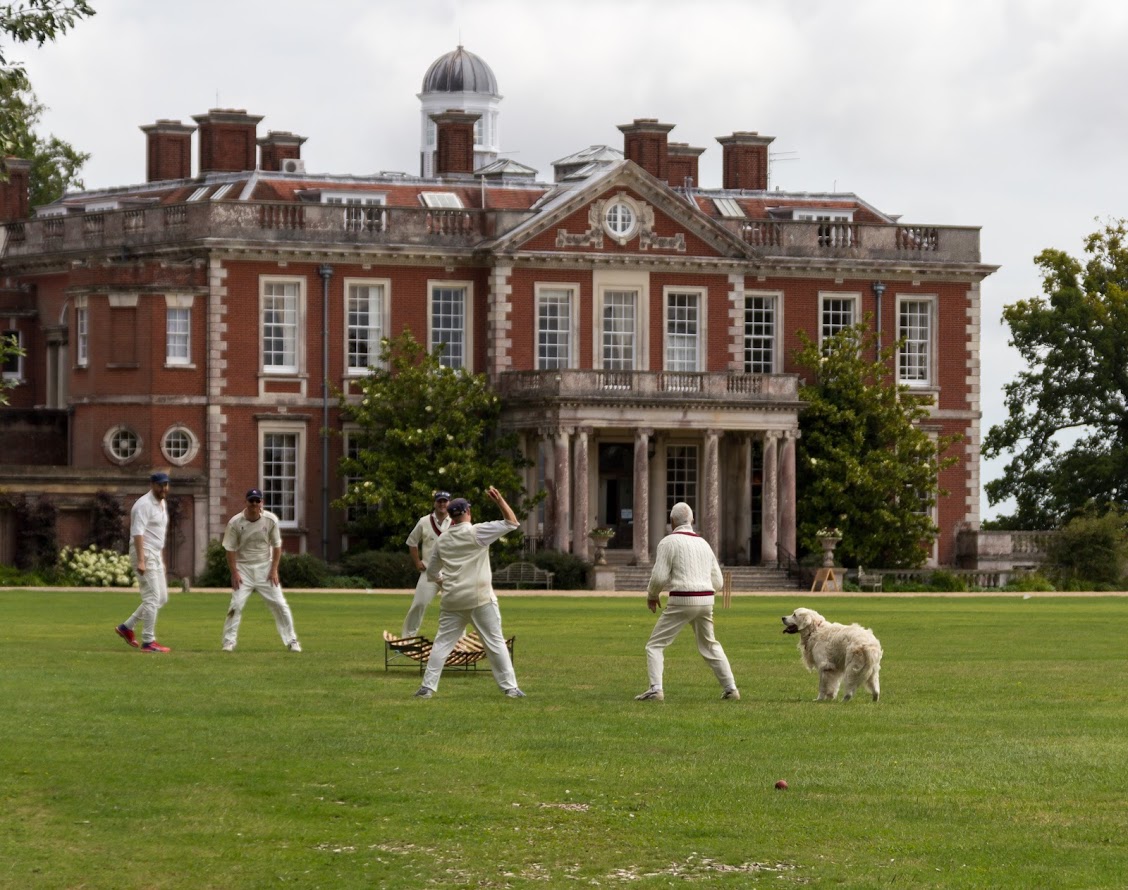

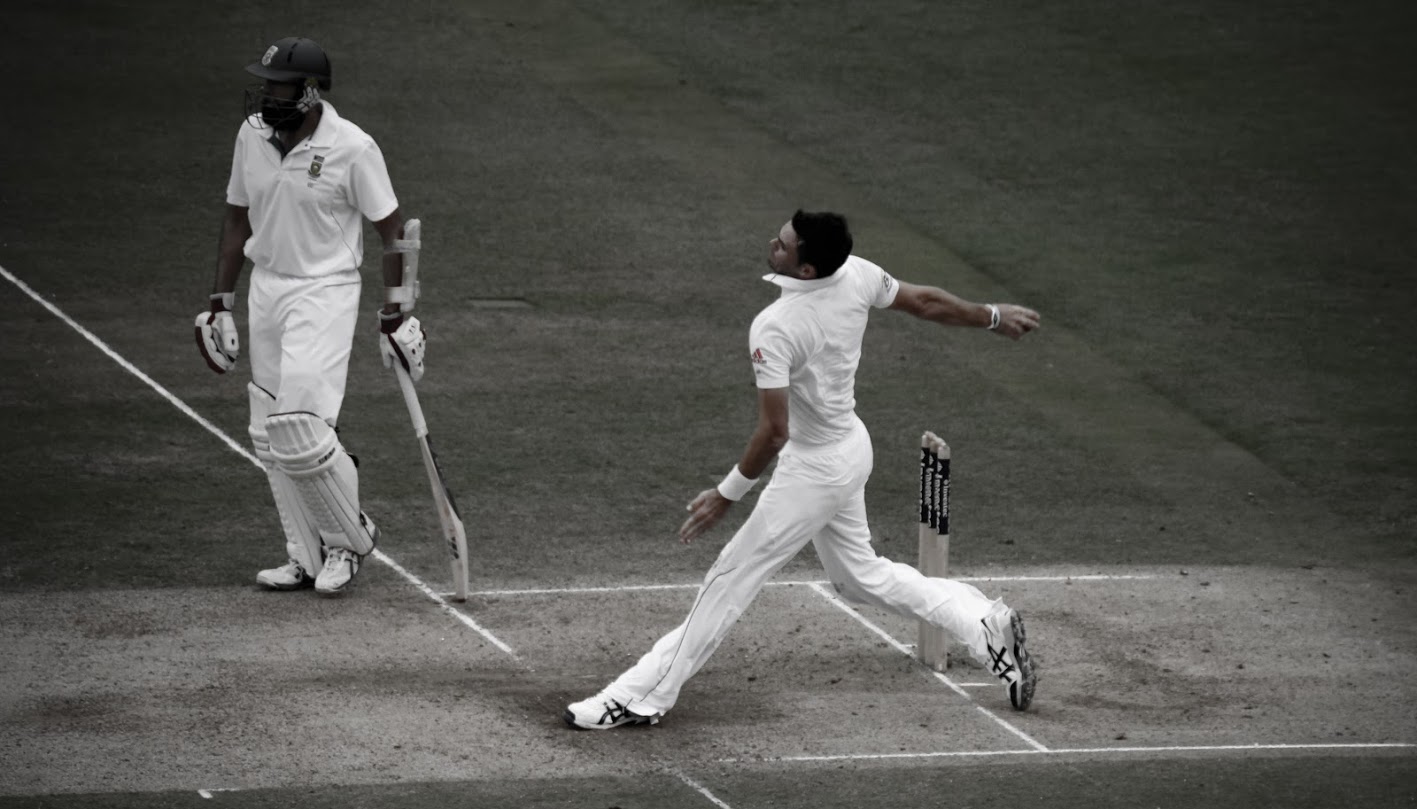
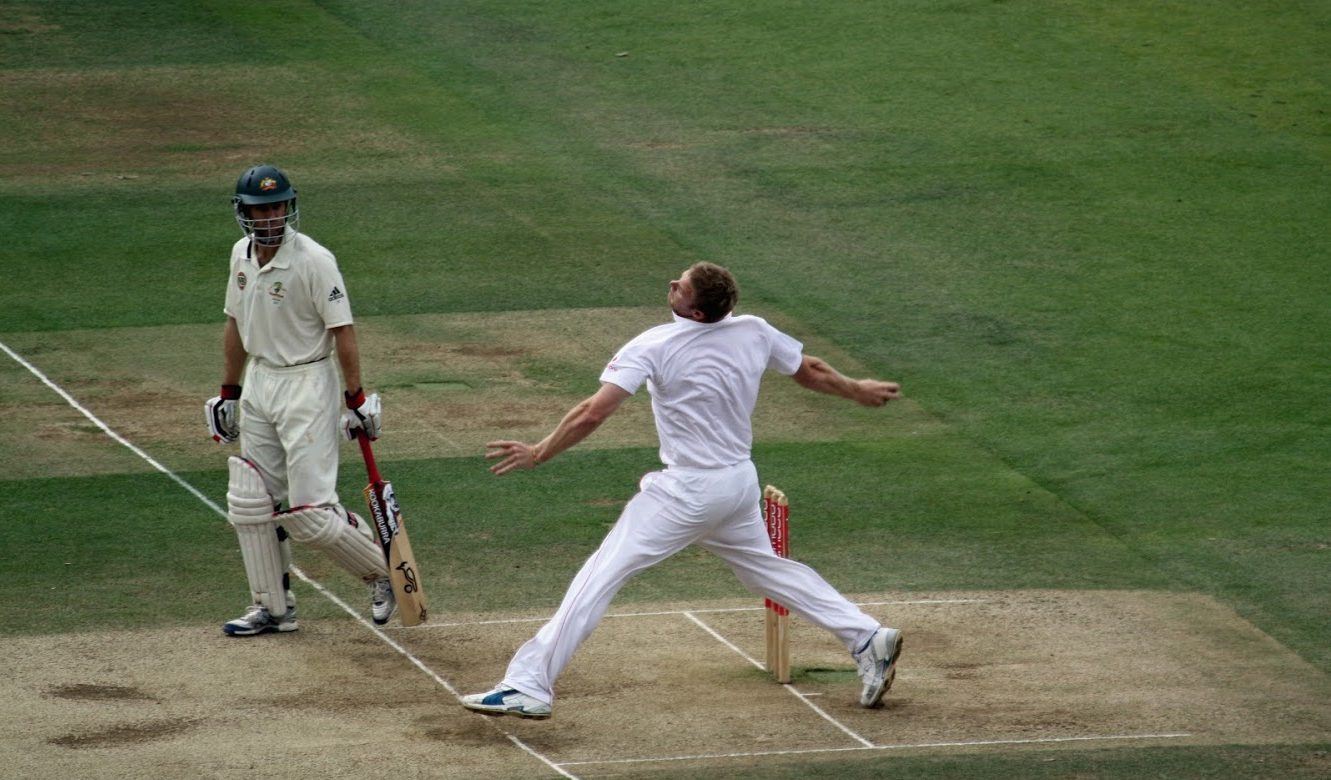
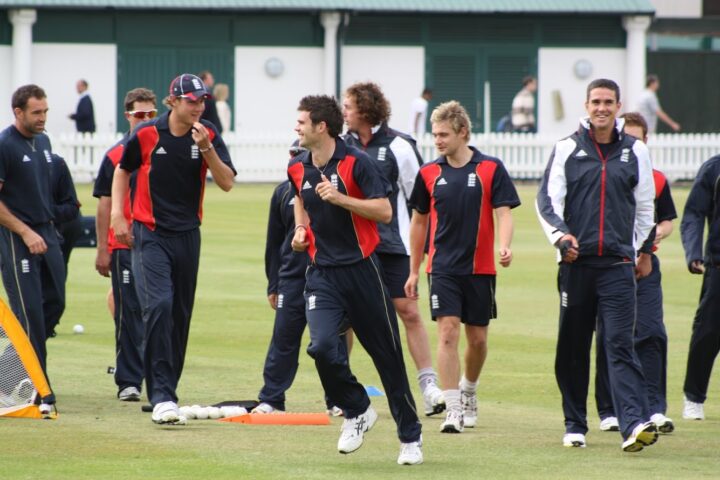
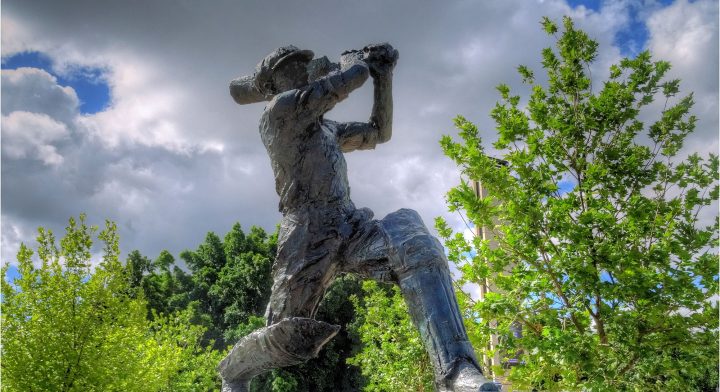


What an evocative piece – beautifully written. Thank you Garry. I have no doubt that your recollections will spark similar memories in other readers all over the country (and beyond).
Having stopped playing cricket upon leaving school I did not come back to the great game as a participant until well into my 40s. Having done so, however, I greatly enjoyed two decades of village and social cricket (‘friendlies’ only) with a splendidly eccentric cast of characters whom Garry would doubtless recognise. I fear that I was “the decent bloke, whose biggest failing was that he desperately wanted to be a good cricketer” – though I was very happy to bat well outside the top four.
I write this from the west coast of Canada. Yes – I followed ‘The Girl’ here some time back. There is cricket here – but it is sadly not the same…
Thank you for stirring treasured memories.
Lovely article.
I guess we all have memories of our heyday in club cricket playing with and against some pretty eccentric characters. With the advent of more serious league cricket in the 70’s, where clubs seemed to become more businesslike and better organised there was less room for the maverick to flourish. I remember distinctly how the selection committee governed the state of play for our week, where even missing a weekday net could risk your place.
Even then there were exceptions, which I’m sure still exist. I remember a young West Indian lad called Barrington Cameron, a flighty leggy with no aspirations to bat or field, proud to wear the no11 shirt, who held brief court in our youth team with his larger than life personality. He used to follow through halfway down the pitch and if he met a batsman coming the other way would deliberately obstruct him with lines like; ‘don’t kiss me man’ and ‘where d’you tink you Goin’. We all loved him succeed or fail. He always picked up wickets but often at cost, however he never let that bother him and he was a real trier who hated to be taken off. When he came into bat he had an elaborate forward defensive and a cow corner slog. He never threw the ball in the field just bowled it in, often underarm and despite having an at best an unreliable pair of hands would always call for the ball if in the vicinity, his vicinity being third man. When dropping a ball he could be heard bewailing der she goes.
Brilliant!
Memories came flooding back of my cricket teams in the 80s and 90s…
I had the fortune to play in some lovely locations (like Richmond Green or Stansted Park). I had my share of matches on anonymous municipal grounds as well with flight paths overhead and dog turds underfoot. I drove a bowler whose slips had been making sarcastic comments back over his head and was part of a school team bowled out for five with every ‘run’ being an extra. Some favourite memories from watching include Bob Willis taking a hat-trick in the very first match I saw (Rest of the World versus the 1977 Aussies at Arundel) and the SL crowd singing “It’s a long way to Colombo” while Gooch made a daddy hundred off them at Lord’s.
A couple of points on the current Test:
1) Moeen Ali seems to be the first selection for a Test based on Hundred form. He won’t be the last.
2) The Guardian printed a horrible attack on Sibley just before this Test. The last player to be on the receiving end of something like that was Nick Compton. Sibley isn’t Boycott reincarnate but as England’s second top scorer this year he’s hardly where the problems start with the batting.
Just read that Guardian article. What a nasty hatchet job it was. The comments around a “good education” were even worse in my view. Somehow typical of this newspapers obvious blind spots.
What a lovely piece of writing, Garry – many thanks.
How those memories roll back…
Peter Drake
teacher playwright
Hexham
Northumberland
Superb article. Thanks Gary.
What a fantastic piece.
Having played for the Willows CC for many years on both Saturdays and Sundays, I can confirm that all of the above is not only accurate, but thoroughly captured the essence of our team.
Sadly for me, as this was the era ever slightly preceding the now common digital camera or smartphone, I have no corkboard with photographs on, but we did achieve some incredible things as a club which yielded some scalps of powerful teams as well as some trophies which now sit on a shelf needing a little dusting.
The one-handed reflex catch by Les at short leg was spectacular to watch and behold – at a village called Mere in Wiltshire if I recall – despite too many short balls being bowled, Les was asked to take the position. A bloodthirsty drive which would have sent an ordinary man to cower and duck out of the way – Les not only took possibly the greatest catch I have ever witnessed but he also so pumped-up and exhilarated that couldn’t let go of the ball afterwards for some time, foregoing the customary returning of the ball back to the umpire at the fall of a wicket. The rest of us, prior to congratulating him stood in awe, shock and sheer amazement for a few moments before celebrations began.
These days, people cheaply throw around the term “banter” to describe the atmosphere in a team setting. What we had and still have as friends surpasses banter, team spirit, and friendship to bonds that will last a lifetime. We could rib each other without it being too personal and, I recall the rest of the side trying to guess how many balls I would last as I went out to bat, swing and miss when it was my turn to face the music and bowling far above my own ability to play.
This brings me to my own memory of our former Captain, Chris. Still with us and as a proud staff member of the NHS – a thin man, who could have passed for a set of stumps or maybe even the illustration of Rincewind from the Discworld series of novels by Terry Pratchet as some of his clothing had a slightly baggy appearance. He was my first Captain outside of the school team, and had a fascinating understanding of the part of cricket that had to be played in the mind and not too dissimilar from a game of chess. Working out how to get a batsman out was his area of expertise, executing the plan however….
Thank you again Garry for writing this piece which brought back some of my fondest memories of the characters we had in our team, from the times where we collapsed batting to where we shocked each other with exemplary feats of performance, to the members that are no longer with us.